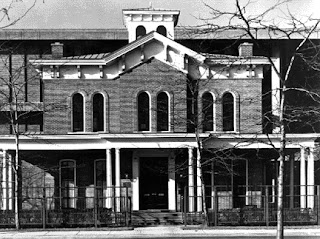A letter written to Jane Addams, seventy five years after her
death on May 21, 1935.
Jane,
Even though you have been gone for seventy five years,
and I never got to meet you, I have been inspired by your life story and
your life work. The fact that you won
the Nobel Peace Prize has pushed me, and makes me want to do something as wonderful
as you did. You said it best when you
stated: “Social advance depends as much upon the process through which it is
secured as upon the result itself.” I
want to be part of this process. You
left this incredible legacy behind that has changed America. You were the start of women participating in
improving the lives of others, the Hull House sparked the creation of many
other similar houses across America, you were involved in the creation of the
first juvenile court in the US, and you were one of the first female leaders of
many large-scale organizations. I think
you were a truly influential woman in American history, and wanted to thank you
for not only overcoming the struggles in your life but for also improving the
lives of so many others.
 |
| A modern settlement house. |











